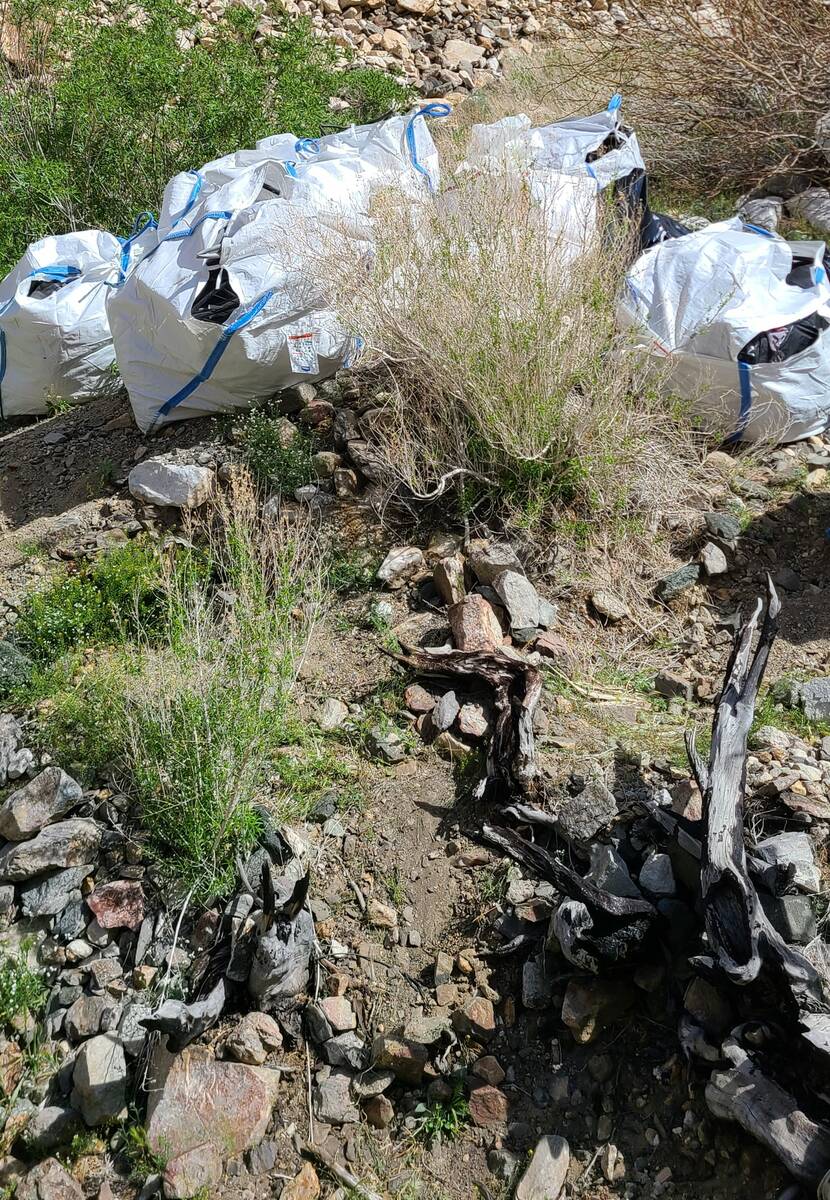Jail Canyon reopened at Death Valley following clean up of drug den
DEATH VALLEY, Calif. — The National Park Service and partners recently removed trash and dangerous chemicals left behind from an illegal marijuana grow site operation in Jail Canyon in Death Valley National Park.
Jail Canyon has reopened to public visitation now that the safety closure has been lifted.
An active marijuana grow operation was discovered during a fly-over of Jail Canyon, located in the western slope of the Panamint Mountains. Over 10,000 plants were eradicated with an estimated sale value of over $7 million. Upon learning that they were discovered, the growers abandoned the site. They left behind a damaged landscape, trash and hazardous chemicals.
Jail Canyon is one over 20 illegal grow sites which have been found near springs in remote canyons in the park over the past decade. The growers typically terrace the landscape and install irrigation tubing to divert water to the marijuana plants. Workers have poached wildlife for food. They stockpiled chemicals and applied pesticides to protect their illegal crop, contaminating water sources in the process. The most dangerous chemical found in Jail Canyon was carbofuran, which is very toxic to humans and wildlife.
On April 27, park rangers and American Conservation Experience (ACE) members hiked through dense vegetation into Jail Canyon, and bagged up tubing, tarps, bedding, and other trash. A few days later, the California Air National Guard used their Pave Hawk helicopter to perform a “longline operation”. This operation consisted of dropping large cargo nets to the park rangers in the canyon who then loaded the garbage into the nets. Thirty-five cubic yards of trash were removed, and the site was returned to a more natural state.
When hiking in remote areas of the park, visitors are advised to be aware of their surroundings, and pay attention to things which seem unusual such as modern trash, well-used human trails, or tubing. If you discover a grow site, leave the area immediately and report the location to the NPS at a visitor center or call the NPS tip line at 888-653-0009.
Due to the rugged, often trail-less terrain of Death Valley National Park, the NPS has increased the use of surveillance to detect the presence of new grow operations to protect park resources and improve visitor safety.
Death Valley National Park is the homeland of the Timbisha Shoshone and preserves natural resources, cultural resources, exceptional wilderness, scenery, and learning experiences within the nation’s largest conserved desert landscape and some of the most extreme climate and topographic conditions on the planet. Learn more at www.nps.gov/deva.














